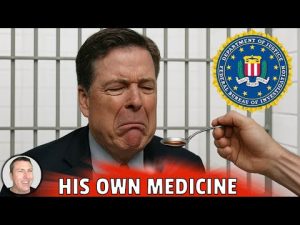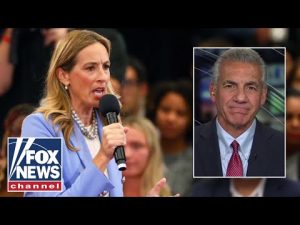The long-awaited moment of accountability arrived this week when a federal grand jury returned an indictment against former FBI director James Comey, accusing him of lying to Congress and obstructing a congressional proceeding. For years Comey escaped punishment while overseeing a bureau that too often acted like a political arm of the administrative state, and this indictment marks a rare move to finally hold an elite accountable for abusing power.
Prosecutors charged Comey with one count of making a false statement to Congress and one count of obstruction tied to his September 30, 2020 Senate testimony, the moment when the record shows he denied authorizing a leak about FBI investigations. The charges were filed just as the statute of limitations was about to expire, a factual and legal wrinkle that explains the timing and urgency of the filing.
The key exchange that prosecutors flagged happened during that Sept. 30, 2020 hearing, when Senator Ted Cruz pressed Comey about whether he had authorized anyone at the FBI to serve as an anonymous source for a Wall Street Journal story. Comey adamantly denied authorizing a leak, despite later evidence and testimony suggesting senior FBI figures were coordinating disclosures; Cruz’s line of questioning that day is now central to the Justice Department’s allegations.
This case did not spring from nowhere — it was shepherded into court after a tumultuous shakeup in the Eastern District of Virginia, including the resignation of a career prosecutor and the rapid installation of an interim U.S. attorney aligned with the administration. That sequence, and the race against a five-year limitation period, has critics on the left howling about politicization; but the basic facts remain: the grand jury found sufficient evidence to return charges.
Hardworking Americans who watched Comey for years saw a pattern: selective leaks, double standards, and a bureaucratic arrogance that put politics over equal justice. Conservatives have long said there must be accountability for officials who weaponize institutions against political opponents, and this indictment is the kind of consequence that restores a measure of faith in the rule of law. No one should be above the law, and that principle must apply whether the accused walks the corridors of power in downtown Washington or answers to voters in flyover country.
The broader context — the Crossfire Hurricane probe and the inspector general’s findings about FISA abuses — show systemic failures at the top of the FBI that cost reputations, careers, and public trust. Comey’s testimony before the Senate in 2020 tried to smooth over those failures, but senators like Ted Cruz were relentless in exposing the contradictions between Comey’s public words and what internal documents and agents later revealed. The indictment simply forces those contradictions into a court of law where they can be tested.
Democrats and media elites predictably cry “weaponization” and claim political retribution, but that argument rings hollow when measured against the facts of the case and the long trail of misconduct that preceded it. If powerful people within the FBI lied under oath or obstructed oversight, Americans across the political spectrum have a right to expect accountability — and to expect their justice system to treat every official the same.
This moment should remind patriotic Americans why vigilance matters: institutions only serve the people when the people demand integrity. Stand firm, demand transparency, and insist that the same standards apply to everybody who has ever traded public trust for political advantage. The fight to reclaim honest government continues, and this indictment is a necessary step in that fight.







